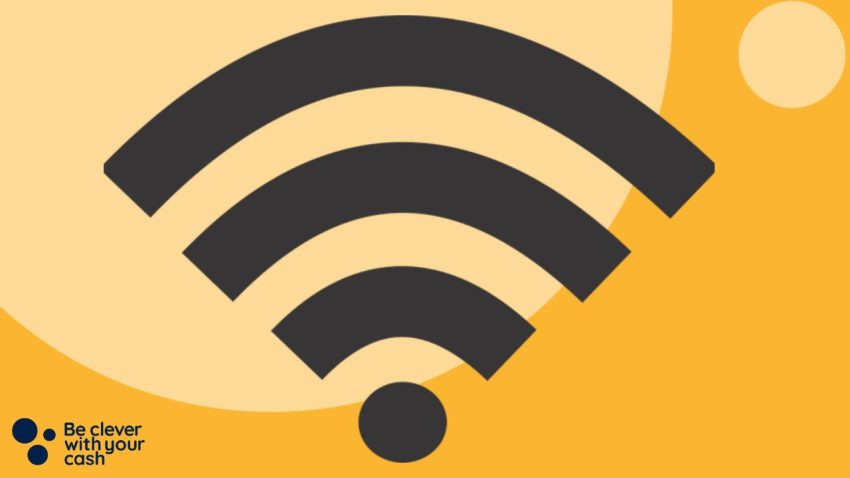New rules should make it easier for you to get the broadband you’re paying for. Though it won’t solve wi-fi issues.
[box]
Contents
- Your new rights
- Why wi-fi isn’t covered
- How to improve poor wi-fi
- How to check your internet speed
- Get cheaper broadband
Some articles on the blog contain affiliate links, which provide a small commission to help fund the blog. However, they won’t affect the price you pay or the blog’s independence. Read more here.
[/box]
There’s little more frustrating in modern life that bad broadband. My work is mainly online, so a decent connection is essential, and most of the time it’s sufficient. But when it comes to streaming films and TV, I’ve had to give up when dropped connections and slow speeds cause constant buffering. So some new rules this month are more than welcome.
Your new rights
There are a few parts to the ‘code of practice’. Although participation is voluntary, BT, Virgin, TalkTalk, Sky, EE and Plusnet have all signed up – which amounts to 95% of the market. Here’s what you can expect as a consumer:
Companies have 30 days to fix speed problems or let you leave fee-free
When I’ve had speed and connection issues my major frustration has been the cycle of deferment to get anything done. Most recently it took three or four calls to get an engineer booked to take a look at my Virgin connection. Hopefully this new rule will make providers act faster.
If they don’t you can cancel and take your business elsewhere. There are likely to be some great new customer deals for you to take advantage of. Though ask neighbours who they are with and what speeds they get – it could be a case of better the devil you know.
You can cancel TV and phone contracts at the same time
One major issue with bundled telecoms is you’re often tied into the other parts of your package even if you can leave one. Now, as long as you took out the additional services at the same time as your broadband, you can cancel them all without penalties if the speed issue isn’t fixed within 30 days.
You’ll be told the minimum speed you’ll get at peak times
This only really applies to new customers – though if you’re a keen money saver then this could be you every 12 to 18 months. Now when you sign up, you’ll be told the minimum guaranteed speed at peak times, which Ofcom says are 8pm to 10pm. It’s these hours, when more people are at home and more devices are being used that more strain is put on the broadband infrastructure, and speeds drop as a result.
This applies to all connections
Until now cable wasn’t included in fairness rules. These changes cover all connection types, whether copper, fibre or cable – as long as the provider is signed up.

What it doesn’t cover
I’ve noticed more and more when I contact Virgin about low speeds that they try to fob the issues off as wi-fi problems. So if the problem with speeds is actually down to the size of your house, positioning of walls or placement of the router, it won’t be something the code of practice covers. I think this will be the excuse used to get around the rules – though in fairness, the speeds advertised are only into the home via a connection.
How to improve bad wi-fi signal
You can try wi-fi boosters to help improve your signal. These include powerline adaptors you put plug sockets so the signal is transferred via the electrical wiring. You plug one into a socket near your router and connect them via a cable. Then you put your other adaptors in sockets in rooms the signal can’t reach. I installed a set similar to this at my parent’s house and it works well to give them coverage in a black spot.
However they didn’t work for me at my house, possible because the wiring was on different circuits. So I tried instead a wireless extender. This acts as a relay point and works well. They can cost more though – this is the one I got on offer last Prime Day to make it more affordable. and
Or if this doesn’t work, you can try very expensive “mesh” systems” (like this one from BT) which create a new network for you. Or something.
How to check your internet speed
Ideally you should connect your computer or laptop to the router via a cable to get the most accurate speeds – and those are the figures the broadband companies will use as a benchmark. But you can test on wi-fi too to get an idea. I tend to use Speedtest.net on my devices (there’s an app for phones and tablets too), and Ofcom has it’s own checker too.
How to get cheaper broadband
I’ve written a few guides to help you cut what you pay for your internet connection. Take a read off the following articles to learn more:





